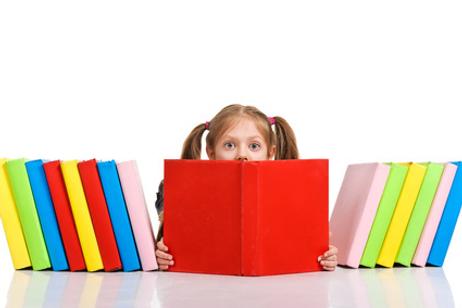Summer may be coming to a close, but the school year is just starting to rev into gear. If you are concerned about how to transition your kids from the lazy, hazy days of summer to a more structured routine, you are not alone. Take advantage of these tips to help the entire family transition back to school more smoothly.
Good Nights = Better Days
Kids tend to adjust to the school routine much better if they move into it gradually. It is particularly important to get your children on a good bedtime schedule to ensure they begin their new school year fully rested.
Begin moving the bedtime clock up by 30 minutes or so a number of days before school begins. Establish a family dinner time and a relaxing evening routine that promotes restful slumber. CBS parenting expert Shannon Eis said in a recent CBS report that a well-rested child is one that can adapt to a new school year quickly and successfully.
Assess Physical Health
The National Association of School Psychologists (NASP) recommends scheduling doctor and dentist appointments prior to the start of school to give your child a clean bill of health before the school year begins. If you have concerns about your child's physical, emotional or psychological development, discuss them with your pediatrician. Your doctor can let you know if your child's development is age-appropriate or an issue worth exploring.
Knowing potential problems ahead of time allows you and your child to work through issues before school begins. It also gives you the information you need to talk to your child's teacher at the beginning of the school year about problems that might arise throughout the year. You can give your child's teacher the tools she needs to manage issues before they become too big to handle in the classroom.
Implement Organization
When the family is organized and prepared for the school year, everyone feels less stress over the transition.
Create a file to keep important papers from your child's school for easy reference throughout the year. Establish a clean, quiet space for your child to do his homework and equip it with necessary supplies like paper and pencils.
GreatSchools.org recommends entering important dates like back-to-school night and school holidays on your family calendar right away to make it easier to plan your schedule.
Commit to completing paperwork as soon as it comes into the house to avoid the accumulation of piles and clutter. Based upon the Montessori philosophy, every child needs organization and predictability to thrive – and keeping your home organized and clutter-free is one of the best ways to create an inspiring learning environment at home.
Easing Anxiety
Some children are naturally more anxious about the start of a new school year, but there are steps you can take to ease their concerns. First, Education.com advises parents to talk to their children about their feelings regarding the new school year. Try to exude a positive attitude about the experience, even if you are feeling your own anxiety about sending your child off for the first time.
The NASP also suggests lining up a few play dates with your child's friends prior to the first day of school or soon after, which will help her develop strong social connections with peers.
Settling In
During the first week or two of school, clear your own schedule as best you can to be there for your child as he makes his transition. The NASP says that parents who are present are able to help their children acclimate to the routine of school and deal with any anxieties or issues that might arise during the first few days.
Education experts also recommend heading to school a few minutes early with your child for the first few days to help him settle into the classroom and maybe talk to the teacher briefly before the day begins. It is also important to have a pick-up schedule in place, so your child knows that someone will be there promptly at the end of the day to take him home.
Dealing with a Rocky Start
If the first few days are a bit rough for your child, you can help him cope with the transition. First, the NASP warns parents not to overreact to your child's separation anxiety or shyness. Remember that teachers are trained to help children adjust and overcome these issues. When you drop your child off at school, do not linger for long. Give him a hug and the reassurance that you will be back to pick him up at the end of the day. Most children adjust beautifully within a few short days.
Getting back to school is a major adjustment for the whole family, but a little preparation and communication will help you make the transition smooth. With these tips in mind, you can make getting back to school easier on everyone in your household.











